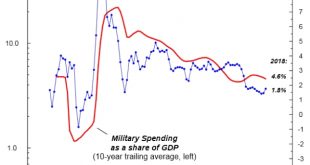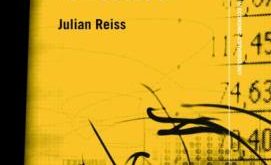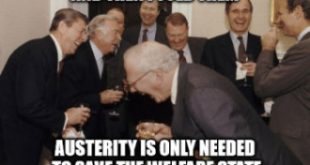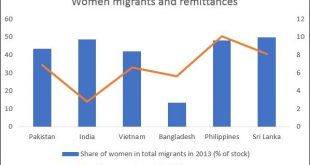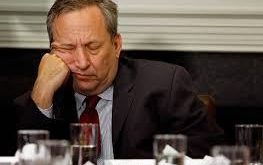from Asad Zaman Guest Post by Donni Wang [author details at bottom of post]. Republished from The Economic Historian blog: “No Go from the Get Go: Adam Smith’s Bad History, Lessons from Ancient Greece, and the Need to Subsume Economics” – She is a historian, and argues here that a false history which portrays progression and progress actually seals off alternatives and choices which we could, and indeed need to, make today. Correcting Adam Smith’s views about history of mankind, using...
Read More »Wars have become too cheap to boost growth
from Shimshon Bichler and Jonathan Nitzan This week, with the Federal Reserve Banks of New York and Atlanta anticipating sharply lower GDP growth for 2019:Q1, President Trump presented a ‘Budget for A Better America’, calling for a smaller government and a bigger military. Forty years ago, the very same call was hailed as the best recipe for renewed growth. The U.S. ruling class was getting ready to install Ronald Reagan as President, abandon the Cold War and embark on neoliberalism,...
Read More »Your model is consistent? So what?
from Lars Syll In the realm of science it ought to be considered of little or no value to simply make claims about the model and lose sight of reality. There is a difference between having evidence for some hypothesis and having evidence for the hypothesis relevant for a given purpose. The difference is important because scientific methods tend to be good at addressing hypotheses of a certain kind and not others: scientific methods come with particular applications built into them … The...
Read More »% of children living in relative poverty – 36 countries
A new mode of production?
from Donald Gillies If a new mode of production is really going to supersede capitalism, then it is likely that we can find examples of this way of producing already coming into existence, though perhaps not yet in fully developed form. Paul Mason draws attention to a striking example, namely Wikipedia. This is what he says (p. 128): “Wikipedia is the best example. Founded in 2001, the collaboratively written encyclopaedia has, at the time of writing, 26 million pages and 24 million...
Read More »Brad DeLong admits neoliberal era has come to an end
from Lars Syll Should Democrats lean away from market-friendly stances and get comfortable with big government again? Should they embrace an ambitious 2020 candidate like Sanders and policies like the Green New Deal, or stick with incrementalists like former Vice President Joe Biden and more market-oriented ideas like Obamacare? One of the most interesting takes I’ve seen on this debate came from Brad DeLong, an economist at the University of California-Berkeley … one of the...
Read More »Econometric beasts of bias
from Lars Syll In an article posted earlier on this blog — What are the key assumptions of linear regression models? — yours truly tried to argue that since econometrics doesn’t content itself with only making ‘optimal’ predictions,” but also aspires to explain things in terms of causes and effects, econometricians need loads of assumptions — and that most important of these are additivity and linearity. Let me take the opportunity to elaborate a little more on why I find these...
Read More »Migration and remittances: The gender angle
from C. P. Chandrasekhar and Jayati Ghosh The gender distribution of migrant workers has a macroeconomic impact – it affects both the level and the volatility of remittance inflows, as the Asian experience shows. The gender distribution of cross-border migration obviously matters because women migrating for work face very different conditions from those of men migrants, whether in the source country, or in the process of travel or in the destination country. These are crucially affected...
Read More »Summers shameless assault on MMT
from Lars Syll First, it was Paul Krugman. Then came Kenneth Rogoff. And now Lawrence Summers has felt the urge to attack MMT and defend mainstream economics: There is widespread frustration with the performance of the economy … Altered economic conditions have led to the development of new economic ideas … And now, these new ideas are being oversimplified and exaggerated by fringe economists who hold them out as offering the proverbial free lunch: the ability of the government to spend...
Read More »Medicare for all is doable; most Americans want it
Dean Baker In Canada, everyone in the country is guaranteed access to health care by the government. The same is true for France, the United Kingdom, Germany, Netherlands and every other country that we think of as comparable in terms of levels of wealth, democracy and economic development. In spite of providing universal care, these countries also all spend much less on health care than the United States. In Canada, per person spending is 60 percent what it is in the United States. In...
Read More » Real-World Economics Review
Real-World Economics Review

